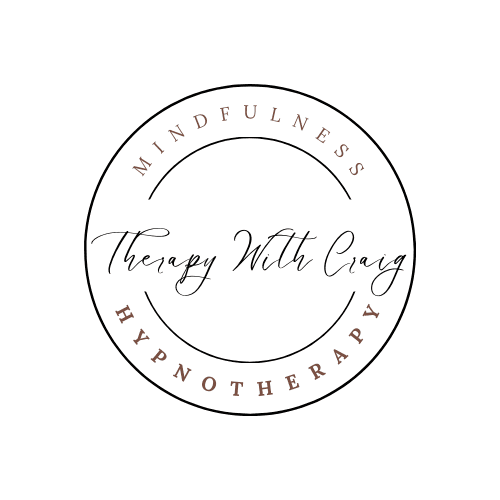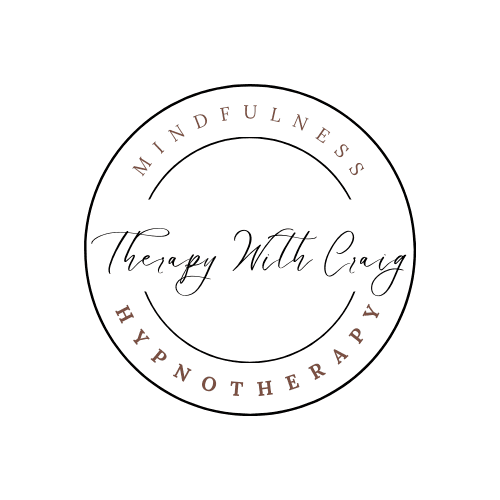Trauma refers to an emotional or psychological response to an event or experience that is deeply distressing or disturbing. Traumatic experiences can include physical or emotional abuse, neglect, natural disasters, accidents, or other life-threatening events.
Trauma can have a significant impact on a person's mental and emotional well-being, and it can lead to a range of symptoms, including anxiety, depression, and post-traumatic stress disorder (PTSD).
Trauma can also manifest as a range of physical symptoms including physical pain, digestive issues, and sleep disturbances amongst many others.
My belief is, based on nearly a decade of clinical experience, that many people that are diagnosed with many mental health conditions are in fact dealing with the impact of earlier traumatic events.
A trauma or traumatic event could simply be described as something that is overwhelming to us at the time. There isn't a scale for how "bad" the event has to be in order to "qualify" as a trauma.
A common misconception with trauma is due to the association with have the term PTSD and those that have served in the armed forces. Whilst, of course, PTSD does effect those individuals dramatically due to the horrors of having to work in warzones. Equally, a traumatic event simply does not have to be anything like that.
During our childhood and adolescence we are much more prone to trauma as our brain's are still developing and we don't have the emotional resilience of adults.
When I speak with those that have experienced trauma, commonly held thought patterns around the experience(s) are along the lines of
- Other people have it worse
- It's not like I was in an actual warzone
- It wasn't "that" bad
- It was a long time ago
- I just need to get over it
- I don't know why it still bothers me, I often don't think about it
- ... But when I do, it feels like it was just yesterday
When anything traumatic happens to us, our brain records the memory and the experience of it in a different way to normal day-to=-day events. We do this as part of the brain's protection mechanisms. It is intended to help us avoid that experience again. However, it is a rudimentary system and can leave us in a state of permanent high alert; when potentially those events will never happen again.
Another way to think of a trauma is slightly more conceptual, but comes from EMDR Therapy*
Trauma occurs when our ideal of ourself is fundamentally changed unexpectedly as a result of our experience of the outside world.
We each have a psychological idea of "who we are" in every interaction and situation we go in to.
Here's a basic example - If you are at work - you have a job title, a desk or work station, and knowledge of how to do you job. If you make a mistake, it can be upsetting or distressing, not because of the mistake itself, but because you thought you were good at your job. Whilst this most likely isn't traumatic, the upset and distress is most likely because of the challenge to your idea of "being good at your job".
In psychotherapy - we call this idea you have of yourself your "self concept".
A traumatic event can occur relatively readily when your self concept is unexpectedly challenged or perhaps permanently changed.
For an individual that has experienced a physical assault, immediately prior to the assault they had a subconscious idea that they were safe in that environment. The part of their self concept that held that belief could have now potentially changed and they now hold the belief that they are unsafe and all people are dangerous. The recovery from trauma happens by the unlearning of the new self concept, if appropriate. Alternatively developing a new idea of a self-concept that is relevant to their life going forward.
Trauma can be easily treated. In my experience, most people that find themselves in my therapy chair are very much "ready" to move past their traumatic experiences and simply need the tools and support in order to achieve this.
However, just for a moment, think of your trauma as a separate "part" of you. Like the angel or devil on the shoulder, a guardian angel, or superhero looking our for you personally, it may be that that part of you firmly and wholly believes that it is "protecting" you and therefore, it may take work and time to move forward in a safe way - you may have to "negotiate" with it. And it is here that hypnotherapy can help. You will be able to work at the depth of your subconscious mind to get a detailed understanding of what you are actually experiencing.
Finally, whilst time can be a great healer for many things, the end of a relationship, being bereaved of an elderly loved one - time does not appear to be a healer for trauma. A trauma event is stored in the mind, brain, the nervous system, and throughout the whole internal system as part of how we protect ourselves in the future against the same or similar events happening again.
* EMDR - Eye Movement Desensitisation and Reprocessing Therapy - which is a form of therapy that has been approved by the NHS for the treatment of PTSD - you can read more about EMDR here)





